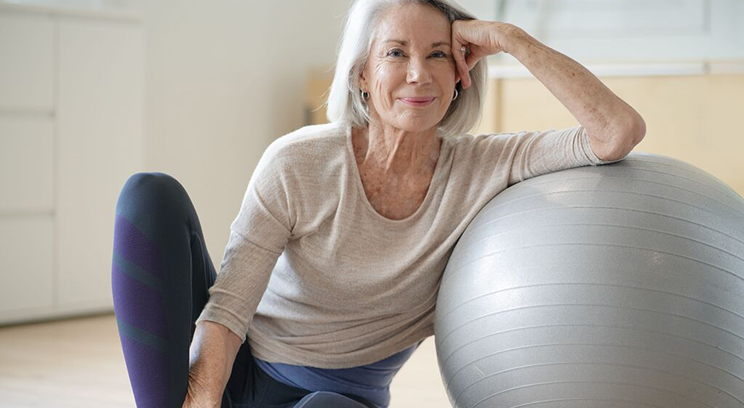Discover some important ways you can help improve your heart health and learn the truth around three common heart disease misconceptions.
Each day in the UK, an average of 460 people lose their lives to heart and circulatory diseases.1 While there has been a rise in heart health awareness over recent years, it’s important to know what more can be done to reduce our risk. Here we dispel some common misconceptions and share tips to help reduce the risk of heart disease.
Here are some key common misconceptions:
- “Heart disease mainly affects men, doesn’t it?”
Heart disease kills the same number of women as it does men, but women are more likely to develop problems later in life. People often perceive cardiovascular disease as something that mainly affects men because high levels of oestrogen in the female body protect them from many heart problems until menopause.
As with men; smoking, weight gain, high cholesterol and low activity levels throughout life all contribute to the risk. We recommend everyone assesses their risk, but men and women around the age of 45 will particularly benefit from undertaking a review of their risk factors such as blood pressure and cholesterol.
- “I’m ok as none of my family have ever had heart problems.”
There are great opportunities available for people to really understand their own risk and manage their lifestyles accordingly. A coronary assessment is an obvious option, but even a general health assessment which looks at lifestyle influences is a good place to start. Regularly checking cholesterol levels and blood pressure are also great ways to keep on top of your heart health, whether you have a family history or not.
- “I’ll worry about it later, it’s a problem for older people.”
In the UK, around 48,000 people under the age of 75, die from heart and circulatory diseases each year.2 With heart disease being the UK’s single biggest killer, heart health is not something we should be putting off until we’re older.
So, what can be done?
With a better understanding of heart conditions, it’s clear that the way we live our lives each day can have a positive - or negative - effect on the health of our hearts.
Check in
A coronary health check looks for evidence of heart disease, identifies the main risk factors for each patient, and offers practical advice about positive lifestyle changes. It is most suitable for men and women aged between 45 and 69.
The check involves several tests including a coronary CT scan, and includes a statistical risk for your age, taking demographics into account. Lasting up to two hours, next steps are then discussed based on the calculated risk level and findings of the CT calcium scan.
Choose foods to improve good cholesterol
The more weight we carry, the higher our cholesterol can be and this can lead to an increased risk of cardiovascular problems. Having a healthy weight is an absolute priority but it’s also helpful to know that there are two types of cholesterol – the good and the bad.
A healthy diet including beans and lentils, oats, garlic, onions, oily fish, avocado, and olive oil can help improve the levels of ‘good’ cholesterol (HDL) in your body and reduce your risk of cardiovascular problems. Switching to foods that are high in protein, choosing colourful fruit and vegetables, and high fibre food can also help lower ‘bad’ cholesterol and improve heart health.
Stub it out
Smoking greatly increases the risk of heart disease. Smoking damages the lining of our arteries, which leads to a build-up of fatty material that narrows the artery. This can cause angina, a heart attack, or a stroke. For those who do smoke, it’s best to discuss with a GP to find a method of quitting that suits you.
Prioritise stress relief and exercise
Over time, just a small amount of daily exercise can have long-lasting, positive effects on your health.
Stress can increase your blood pressure, so it’s advisable to introduce stress relieving techniques to reduce the risk of health problems. Fresh air or meditation to cleanse the mind for ten minutes a day can work wonders. Also, exercising just once or twice a week can reduce the risk of heart disease or stroke. The NHS recommends doing at least 150 minutes of moderate intensity activity or 75 minutes of vigorous intensity activity per week. Moderate intensity activity will raise your heart rate, for instance, brisk walking, or wheeling oneself in a wheelchair. Vigorous intensity activity will make you breathe hard and fast, for instance swimming or running. Those with limited mobility may benefit from stretching exercises, yoga, exercising in water or using resistance bands. Over time, just a small amount of daily exercise can have long-lasting, positive effects on your health.3
Arrhythmia and cardiomyopathy
Remember; heart palpitations, a feeling of an irregular pulse or heart rate, or light-headedness should warrant further investigation. These symptoms could be presenting for various reasons, but along with breathlessness and swelling of the abdomen, legs and/or feet, they could be signs of heart muscle diseases.
Cardiomyopathy is a group of conditions that affect the structure of the heart muscle and reduce its ability to pump blood around the body. Cardiomyopathy can be caused by other heart and circulatory conditions, but it can also be inherited. In the UK, around one in 250 people are affected.4
Wearable technology; in particular, smart watches or portable electrocardiogram (ECG) devices can help identify abnormal heart rhythms. NICE (National Institute for Health and Care Excellence) has recommended a particular portable ECG device (AliveCor’s KardiaMobile 6L) to aid in the diagnosis of paroxysmal AF (atrial fibrillation; a type of irregular heart rhythm and leading cause of stroke).5
In most cases, palpitations are not a sign of anything serious, however they should always be checked out with your GP or health professional.
In this article we use the terms ‘men’ and ‘women’ to include both cisgendered men and women, and those who were assigned ‘male’ or ‘female’ at birth, but whose gender identity now differs.


